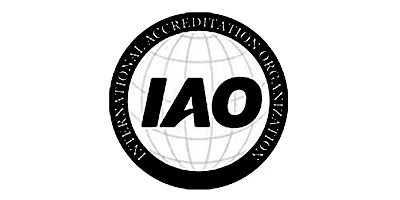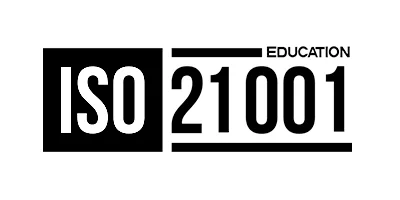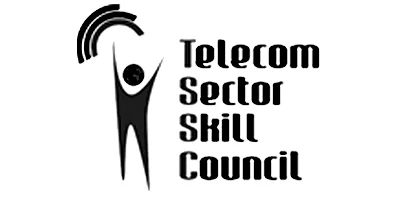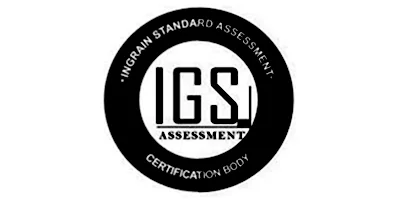Certificate In Pic Microcontroller
4.9 9.8K+ Satisfied Learners
The PIC Microcontroller course at eCareerPluz is designed for individuals eager to delve into the realm of embedded systems and microcontroller technology. Known for its simplicity and effectiveness, the PIC microcontroller enables students to develop, program, and interface a variety of electronic devices. This course emphasizes practical skills in automation, robotics, and IoT applications, equipping participants to address real-world challenges. At eCareerPluz, learners benefit from expert-led instruction that combines theoretical knowledge with hands-on projects, empowering them to create innovative solutions and advance their careers in electronics and embedded systems.
Course Description
This course introduces students to the PIC Microcontroller, focusing on its architecture, programming, and interfacing techniques. Students will gain hands-on experience through practical projects and laboratory exercises, enabling them to develop real-world applications in embedded systems.
PIC Microcontroller
Seeking a Date to Join the Course?
Why choose e-Careerpluz?
Skill Development
Improve your professional skills with our course.
Quality Training
Improve the quality of your work and reduce errors
Expert Tutors
Learn from certified instructors with extensive experience in utilizing these tools in professional settings.
Flexible Learning Paths
Start your learning journey with flexible learning time and convenient learning modes
Hands-on learning
Get hands-on experience through interactive labs, real-world scenarios, and projects that simulate workplace tasks.
Real-Time Projects
Learn with real-time projects that can improve programming efficiency
Course Objectives:
In the PIC Microcontroller course, participants will identify and understand the functions of various blocks within the PIC microcontroller. They will develop programs for data transfer, arithmetic, logical, and I/O port operations, enhancing their programming capabilities. Students will specifically learn to write programs for the PIC18 using the C programming language, including advanced functionalities such as timers, serial ports, and interrupts. Furthermore, the course emphasizes interfacing various components, such as LCDs, keyboards, ADCs, DACs, sensors, relays, DC motors, and stepper motors with the PIC18 microcontroller. By the end of the course, participants will be well-equipped to design and implement innovative embedded systems leveraging the capabilities of PIC microcontrollers.
Explain the evolution of Microcontrollers and Embedded Processors, PIC16F877a PIN connection, PIC16F877a Architecture, PIC Registers, and file register allocation between GPR and SFR.
Explain various arithmetic instructions, find the status of flags for a given set of instructions, calculate time delay for the given set of parameters, alternate functions of Ports A, B, C, and D, TRIS register role in inputting and outputting data, and single bit instructions. Interfacing a simple switch and LED to I/O ports to switch ON/OFF the LED with respect to switch status.
Explain data types widely used by PIC16F877a, select data types for given variables, discuss factors affecting time delay and code size in PIC16F877a, the structure of a C program, bit-addressable I/O programming, bitwise logic operators, arrays, pointers and strings, loops in C programming, and the advantages and disadvantages of using program ROM and RAM space for data.
Explain the timers in PIC16F877a. Develop C programs on timers and counters, describe serial communication features and the main registers used in PIC16F877a, and explain all interrupts. Discuss SPI communication registers and I2C communication registers used in PIC16F877a.
Discuss ADC characteristics, ADC programming in the PIC16F877a, explain PWM and PWM programming in the PIC16F877a.
Install MPLAB software and create a new project file in MPLAB software, install Proteus software, and create a new project file with interfacing for the PIC16F877a Microcontroller.
- Interfacing LCD Display with PIC16F877a Microcontroller and Proteus simulation
- Interfacing Matrix Keypad with PIC16F877a Microcontroller and Proteus simulation
- Interfacing ADC sensor with PIC16F877a Microcontroller and Proteus simulation
- Interfacing Seven Segment Display with PIC16F877a Microcontroller and Proteus simulation
- Interfacing Servo Motor with PIC16F877a Microcontroller
- Interfacing Stepper Motor with PIC16F877a Microcontroller and Proteus simulation
- Interfacing Digital Sensors and Output Relay device with PIC16F877a Microcontroller
- Interfacing RFID with PIC16F877a Microcontroller
- Interfacing GSM Modem with PIC16F877a Microcontroller
- Project 1: Automobile based application project
- Project 2: Agriculture Based Application Project
- Project 3: Industrial Based Application Project
- Project 4: Home Automation Based Application
- Project 5: Robot Based Application Project
Enquiry Now
Mode of Training
In-person Training
Benefit from hands-on practical sessions and real-time demonstrations.
Virtual Training
Engage in live, interactive sessions with instructors and fellow learners.
College Training
Customized training programs delivered to Colleges at their premises.
Self-Paced Training
Access pre-recorded lectures and course materials at your convenience.
Hybrid Training
Attend select sessions in the classroom while accessing the remainder online.
Webinars
Perfect for learners looking to acquire targeted skills quickly.
About Certification of PIC Microcontroller Course in Madurai
Upon successful completion of the PIC Microcontroller Course, participants will be awarded a certification that validates their proficiency in embedded systems programming and microcontroller interfacing using the PIC architecture.
This certification is designed to meet industry standards and is recognized by leading professionals in the fields of electronics and embedded systems, ensuring it holds significant value for career advancement opportunities in technology and engineering sectors.
Furthermore, students will receive a certificate that acknowledges their skills in PIC microcontroller programming, interfacing with various sensors and actuators, as well as implementing real-time projects. This comprehensive training prepares them for a successful career in embedded systems development and the Internet of Things (IoT).
Get Certified Now





Related Courses
At eCareerPluz, we are committed to offering a diverse range of training programs that cater to the needs of aspiring engineers and technology enthusiasts. Our related courses include:
Raspberry Pi Course
4.6 8.7K+
PIC Microcontroller Course
4.5 10.2K+
ARM Controller Course
4.7 9.0K+
Arduino ESP32 Course
4.8 11.5K+
Arduino Controller Course
4.9 13.0K+
Altium PCB Designer Course
4.4 7.8K+
Arduino Controller Course
4.8 12.4K+